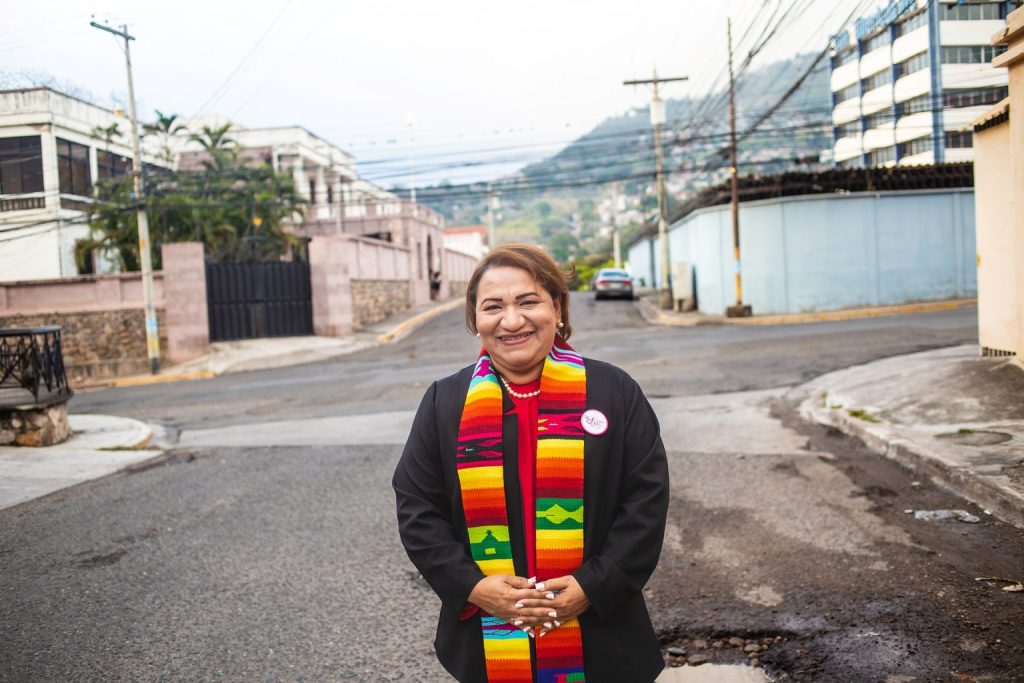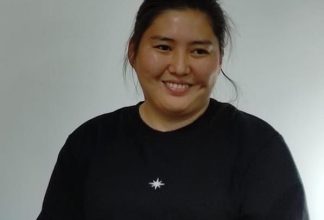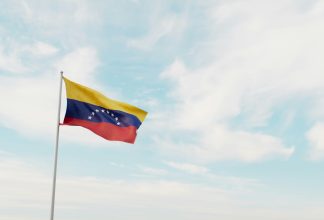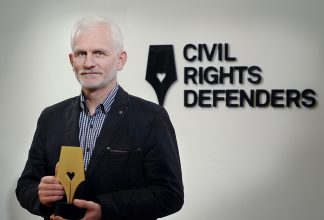Per Anger Prize 2025 to advocate for women and girls in Honduras

The Per Anger prize winner of 2025, Ana Ruth García, fights for human rights in one of the world’s most dangerous countries for women and girls. By using both religion and activism as important tools, she is working for a future in which women and girls have the power to decide about their own lives.
Honduras is one of the most dangerous countries in Latin America for women to live in. Violence is widespread, with one woman being murdered every day on average. There is extensive discrimination against women, and women’s rights are severely limited. After having seen too many teenage pregnancies and too much violence against women, Ana Ruth García founded the women’s rights organisation Ecuménicas por el Derecho a Decidir in 2007.
”In my work I focus on women’s and girls’ rights, particularly their reproductive rights. Questioning everything that girls and women aren’t allowed to do is my greatest strength,” says Ana Ruth García.
Ecuménicas works to give women and girls knowledge about sexual and reproductive health and rights, and to create resistance against the prevailing culture of machismo. Issues the organisation addresses include the right to contraceptives and the possibility of having an abortion, which is forbidden in Honduras regardless of whether the woman was raped or her life is in danger.
”Young women in Honduras often have no knowledge of their reproductive rights. One in four teenage girls in Honduras gives birth before she turns 20. That’s the second highest rate of teenage pregnancies in Latin America. Sex education is not allowed in schools, but our organisation, Ecuménicas, informs teachers who in turn pass on the knowledge to pupils and parents,” Ana Ruth García tells us.
Change the role of the church
The organisation also does advocacy work towards making government policy and legislation reflect the international conventions that Honduras is a signatory to but rarely abides by.
As a pastor and feminist theologian, Ana Ruth García is trying to change the role of the church and its attitude to women and girls. Honduras is a very religious country. Catholic as well as Evangelical churches apply patriarchal theological interpretations that strengthen the prevailing culture of machismo. Ana Ruth García herself experienced violence at home as a child, and realised early on how the message of the church sometimes made women’s vulnerability worse. But instead of turning away from her faith, she used it as force for change.
“In our work, we use quotes from scripture and theological stories that promote women’s rights. This includes focusing on inclusive and humane stories, making reinterpretations of scripture and deconstructing social norms that oppress and demean women,” Ana Ruth García says.
Ana Ruth García has spent more than 30 years trying to make a difference – with religion and activism as important tools. Ana Ruth García and her organisation work in an environment where they meet plenty of resistance, and death threats are an everyday occurrence. Despite this, she continues to work for a future in which women and girls have the power to decide about their own lives.
Jury’s Motivation
“After more than thirty years of untiring work, Ana Ruth García has become a significant force for women’s and girls’ rights in her homeland, Honduras. Her work for justice is carried out in a society where demanding change brings significant personal risk and sacrifice.
Although the Honduran Constitution accords equal rights for all citizens; religion, culture and tradition are often used as arguments against women’s and girls’ rights, especially when it comes to sexual and reproductive health and rights. As a pastor and feminist theologian, Ana Ruth García works bravely from inside and within the church to change its role and attitude to women’s and girls’ rights and opportunities.
Through education, advocacy, dialogue and legal support, Ana Ruth García has succeeded in promoting gender equality and human rights, from grassroots to policymaking. These efforts have enabled tangible, positive change and inspired others to take up the fight for justice and inclusion. Ana Ruth García has united faith and activism in her work for a better and more just world, and we therefore find her a very deserving recipient of the prize.“
About the Per Anger Prize
The Per Anger prize is the Swedish Government’s international prize for human rights and democracy. The prize was established in 2004 in memory of the efforts of diplomat Per Anger during the Second World War, when he saved Hungarian Jews from the Holocaust. The Living History Forum has been tasked by the government to award the prize annually.
These international organisations participated in the nomination work for this year’s Per Anger Prize: Afrikagrupperna, Civil Rights Defenders, Diakonia, The Kvinna till Kvinna Foundation, We Effect, and the Church of Sweden.
This year’s prizewinner was nominated by ACT Church of Sweden.


